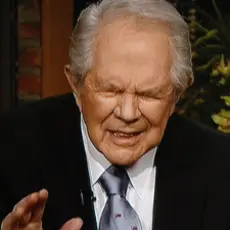Today, the Wake Forest University Divinity School’s Center for Religion and Public Affairs released a document entitled "Religious Expression in American Public Life: A Joint Statement of Current Law."
The document's drafting committee included everyone from former staff members of the ACLU and People for the American Way to Richard Land of the Ethics & Religious Liberty Commission of the Southern Baptist Convention and representatives from Pat Robertson's American Center for Law and Justice. The document seeks to explain church-state law as it stands today:
The drafters’ purpose in crafting this statement is to help foster an accurate understanding of current law and improve our national dialogue on these issues. While there is disagreement among the drafters about the merits of some of the court decisions and laws mentioned in the document, the drafters agree that current law protects the rights of people to express their religious convictions and practice their faiths on government property and in public life as described in the statement. In other words, while this diverse group often disagrees about how the law should address issues regarding the intersection of religion and government, it agrees in many cases on what the law is today. More broadly, the drafters also agree that religious liberty, or freedom of conscience, is a fundamental, inalienable right for all people, religious and nonreligious, and that there is a need to correct misunderstandings about this right. The joint statement, which is formatted in a Q and A style, seeks to provide accessible and useful information for Americans about this area of law.
The document itself can be found here [PDF]. And here is the press release announcing the statement:
As the role of religion in public life continues to spark intense political debate and high-profile court cases, a group of diverse leaders from religious and secular organizations has issued the most comprehensive joint statement of current law to date on legal issues dividing church and state. Muslim, Jewish, Sikh and Christian leaders from the evangelical, mainline and Catholic traditions joined with civil liberties leaders to draft Religious Expression in American Public Life: A Joint Statement of Current Law, released Tuesday at the Brookings Institution in Washington D.C.
Are persons elected or nominated to serve as government officials required to place their hands on the Bible when making oaths or affirmations? May elected officials reference religious ideas and discuss their personal religious beliefs while operating in their official capacities? Are individuals and groups permitted to use government property for religious activities and events? Must secular nongovernmental employers accommodate employees’ religious practices? These are just a few of the questions that the diverse group of leaders sought to answer in the 32-page document.
“The role of religion in public life has long been a source of controversy and litigation,” said Melissa Rogers, director of Wake Forest University Divinity School’s Center for Religion and Public Affairs, which produced the document. “We have brought together a diverse group of experts on law and religion to clarify what current law has to say about some of these matters.”
...
The 35 questions and answers that comprise the joint statement address religion and politics; religious gatherings on governmental property; religious expression in the workplace; and chaplains in legislative bodies, prisons and the military; and other issues.





